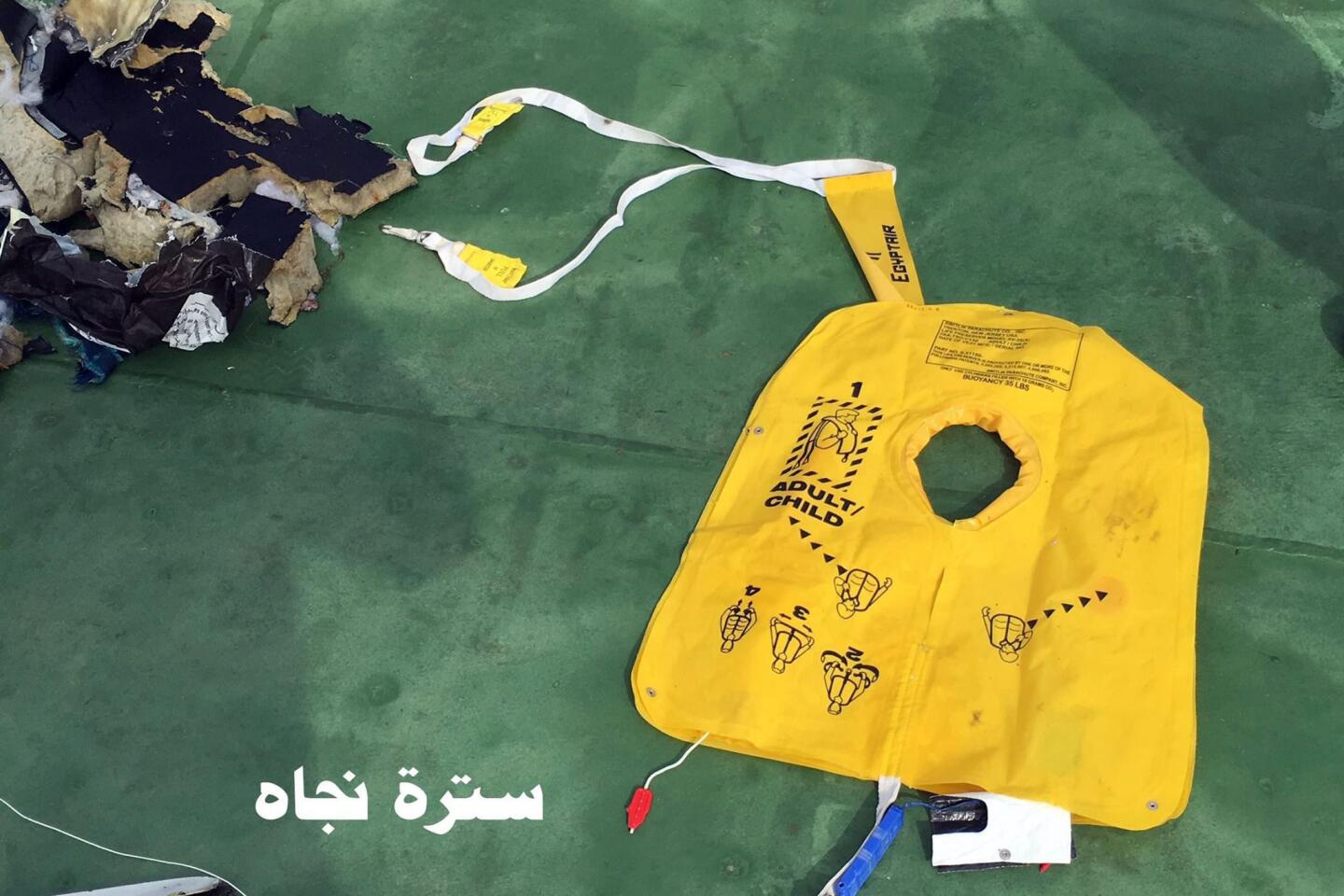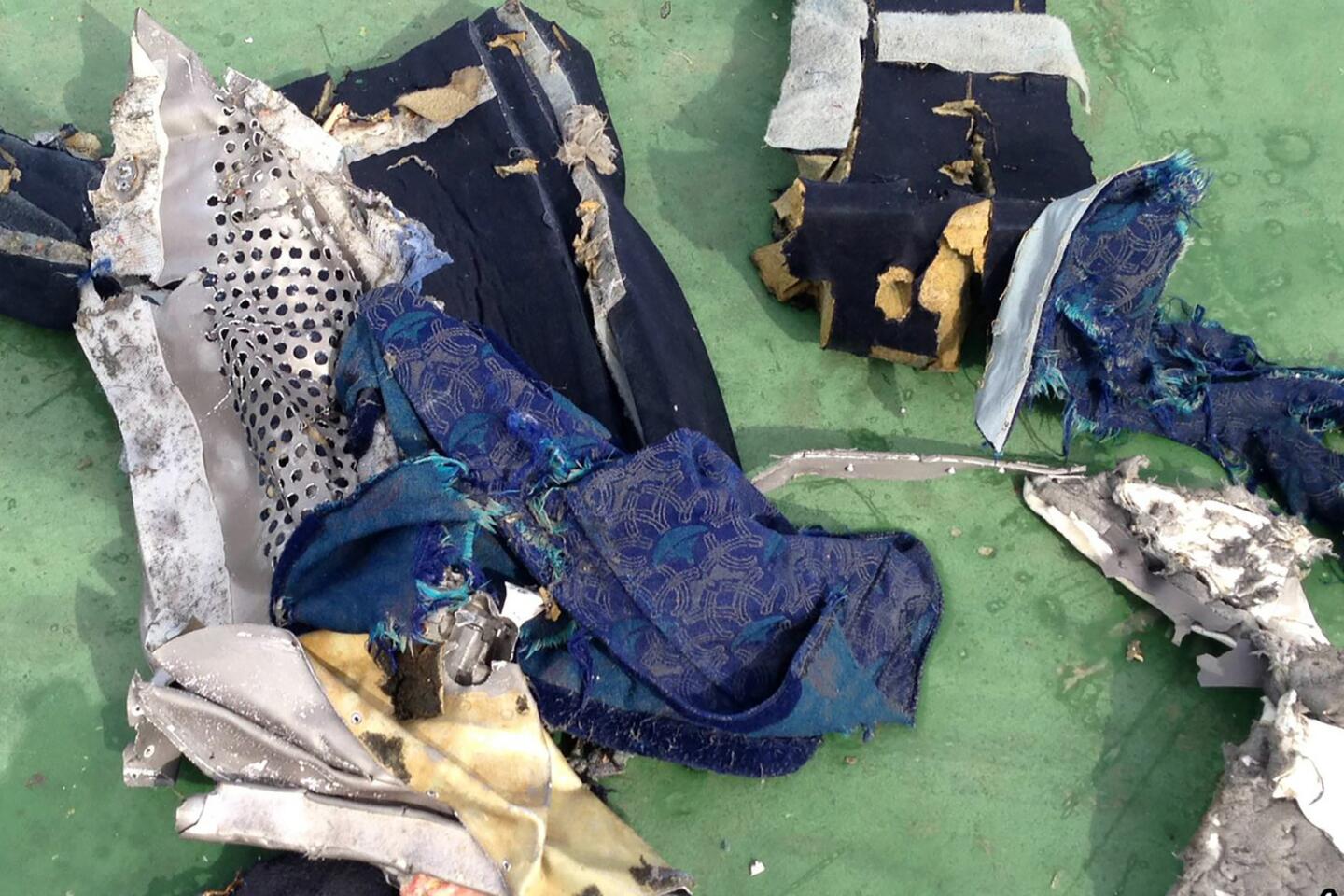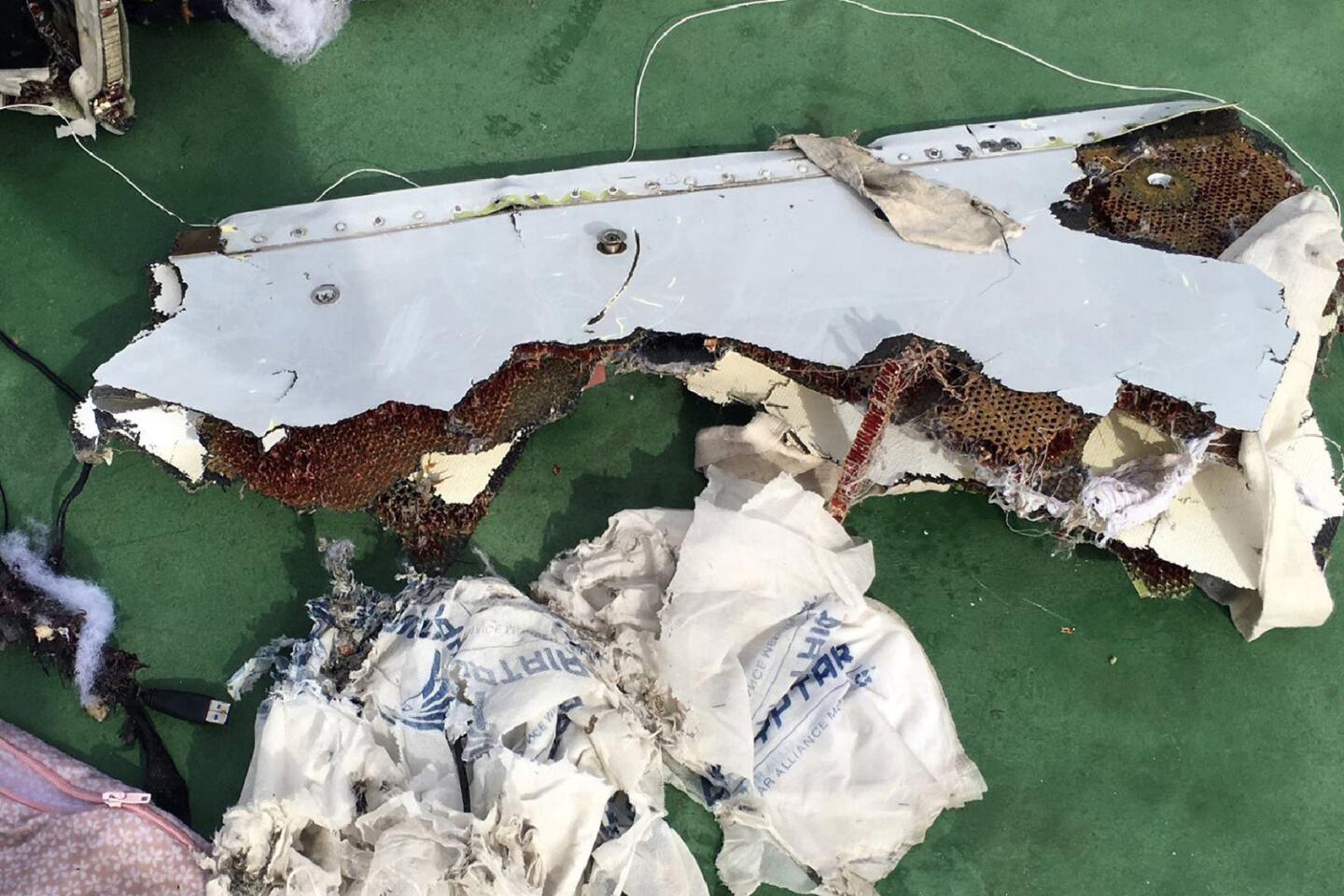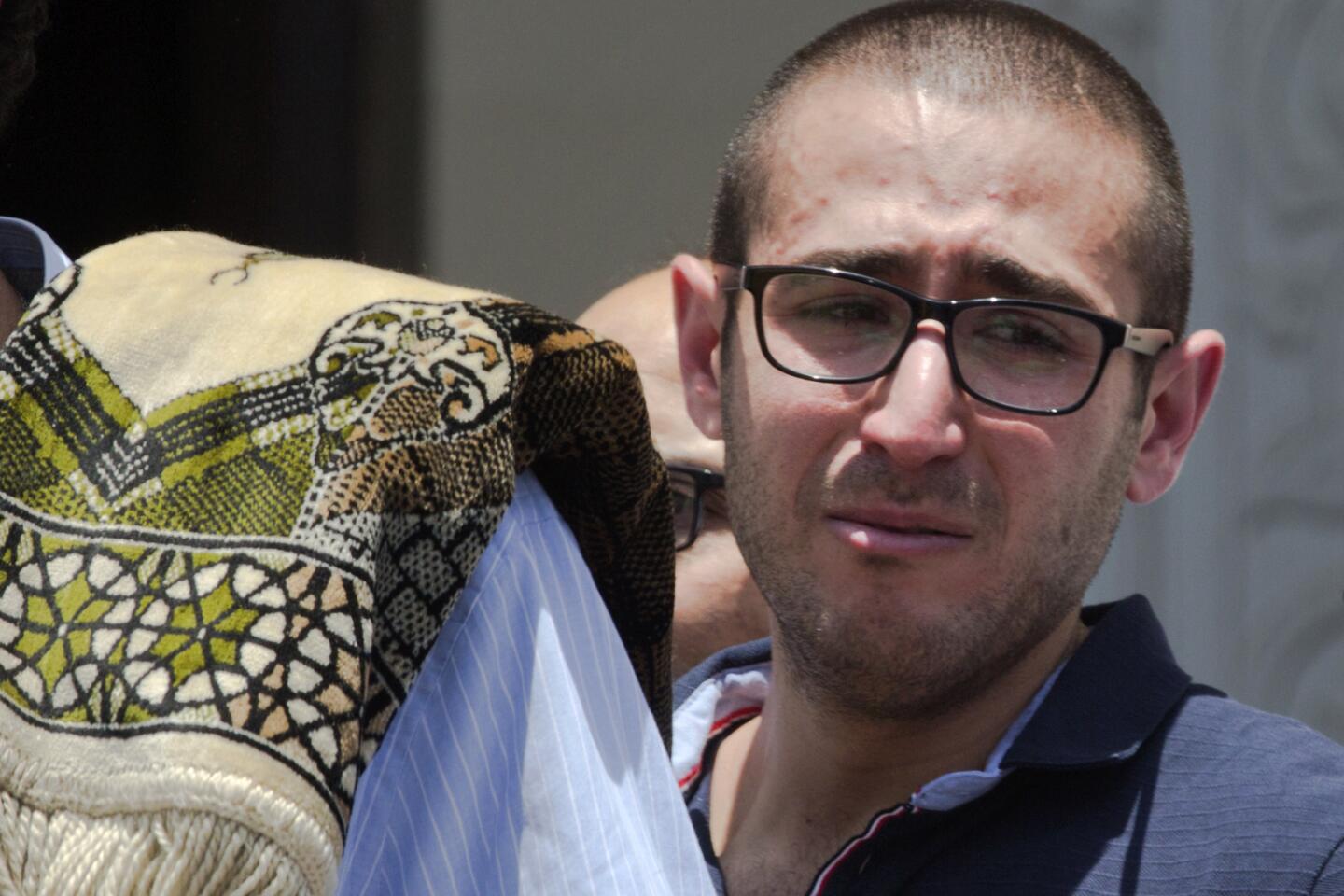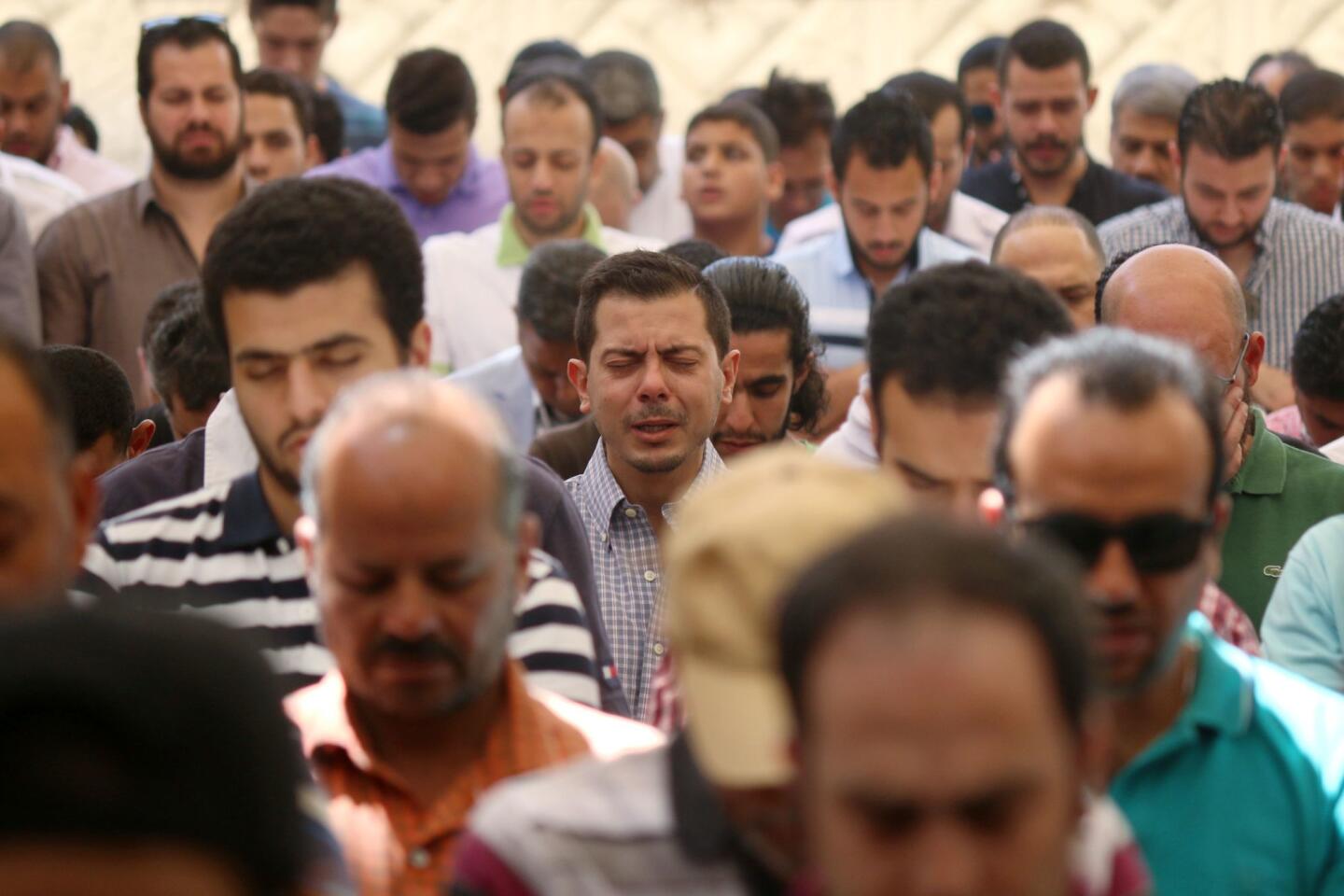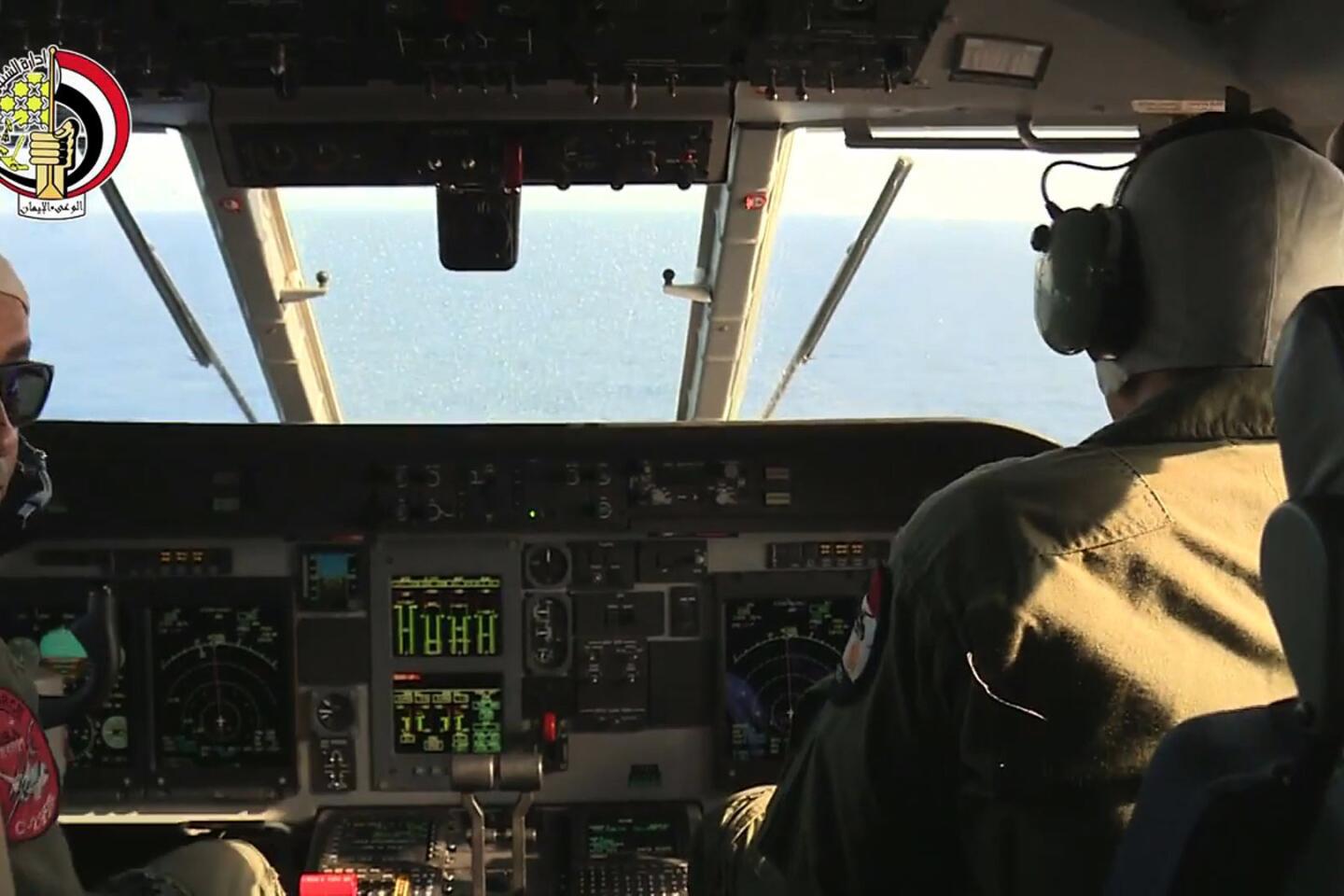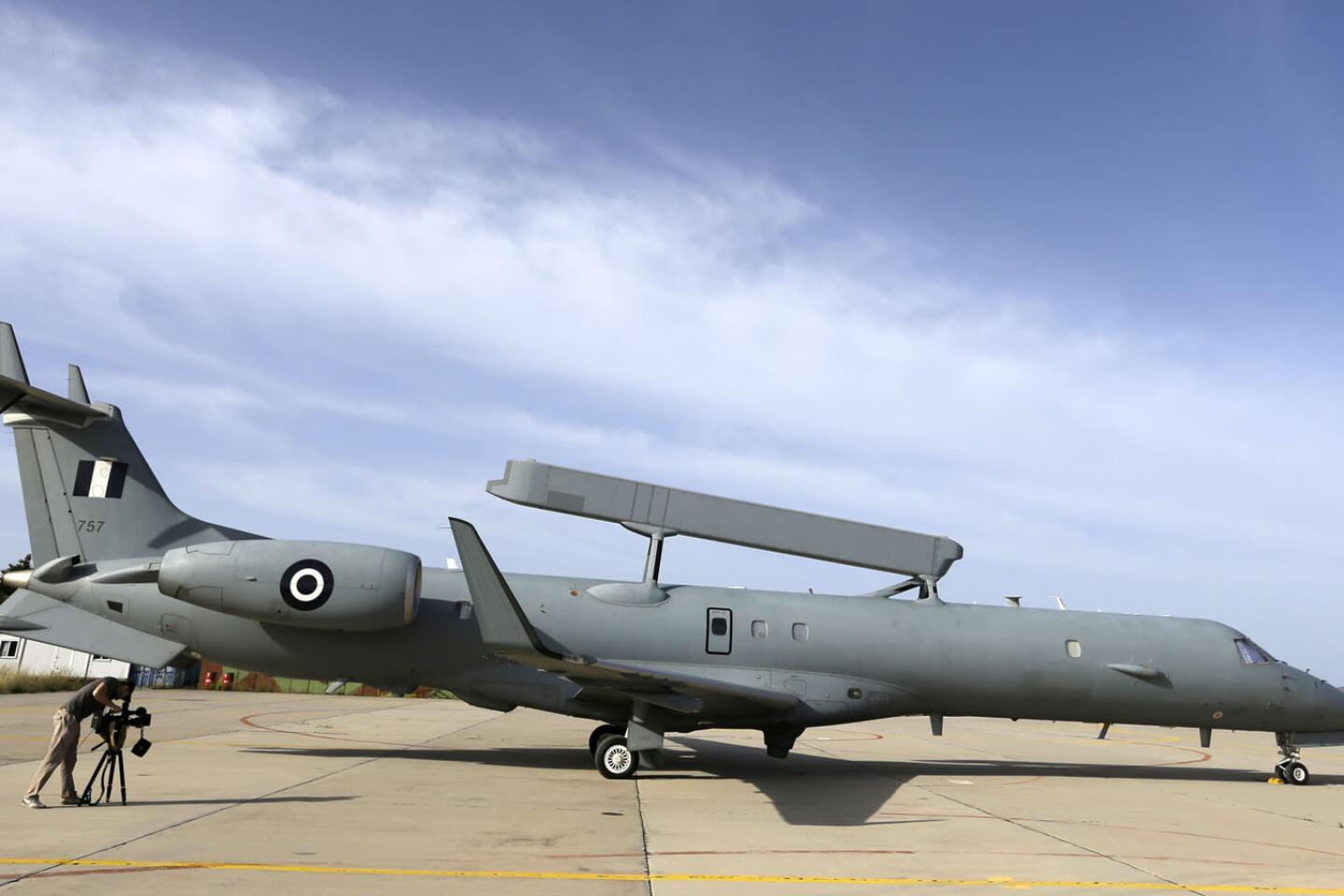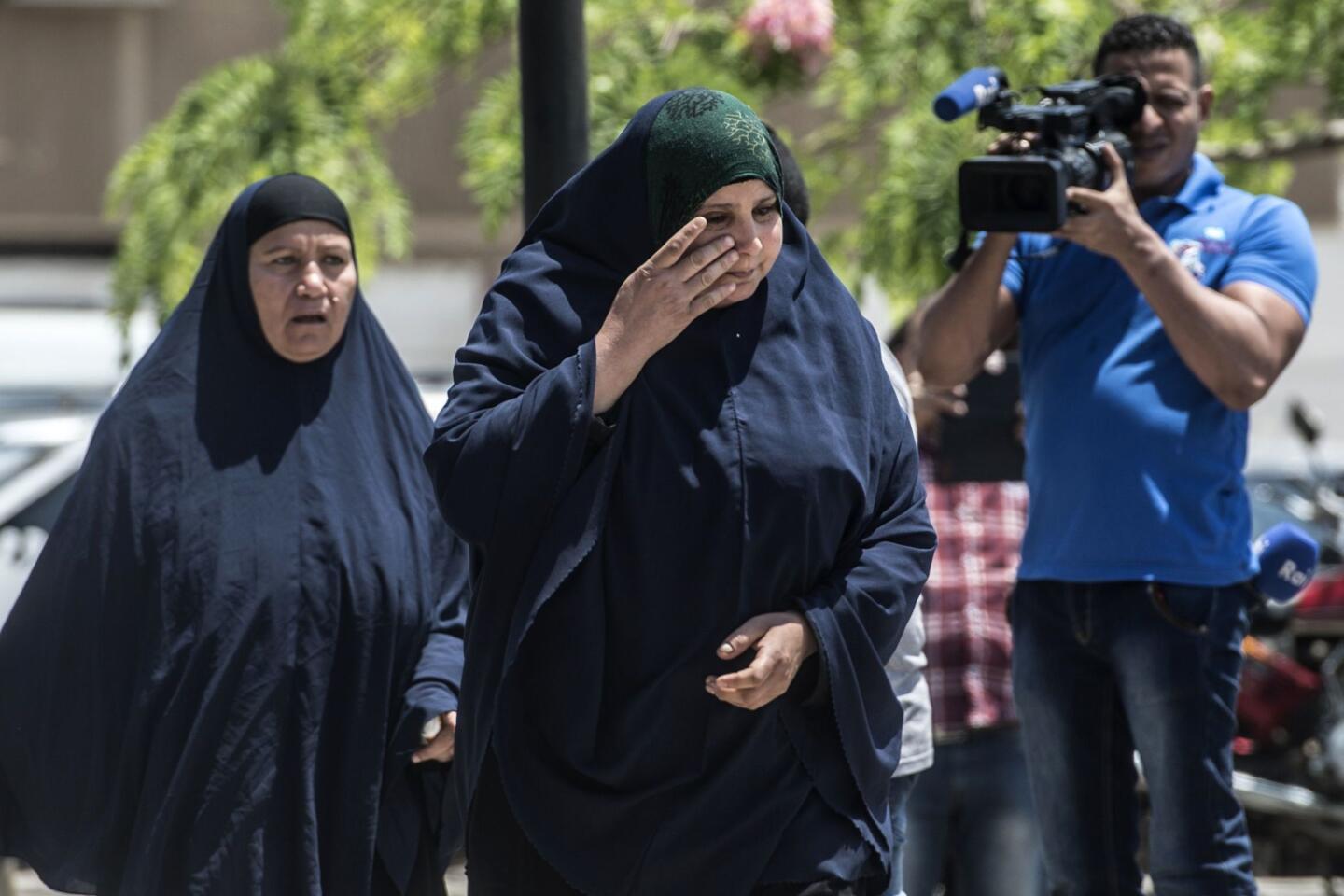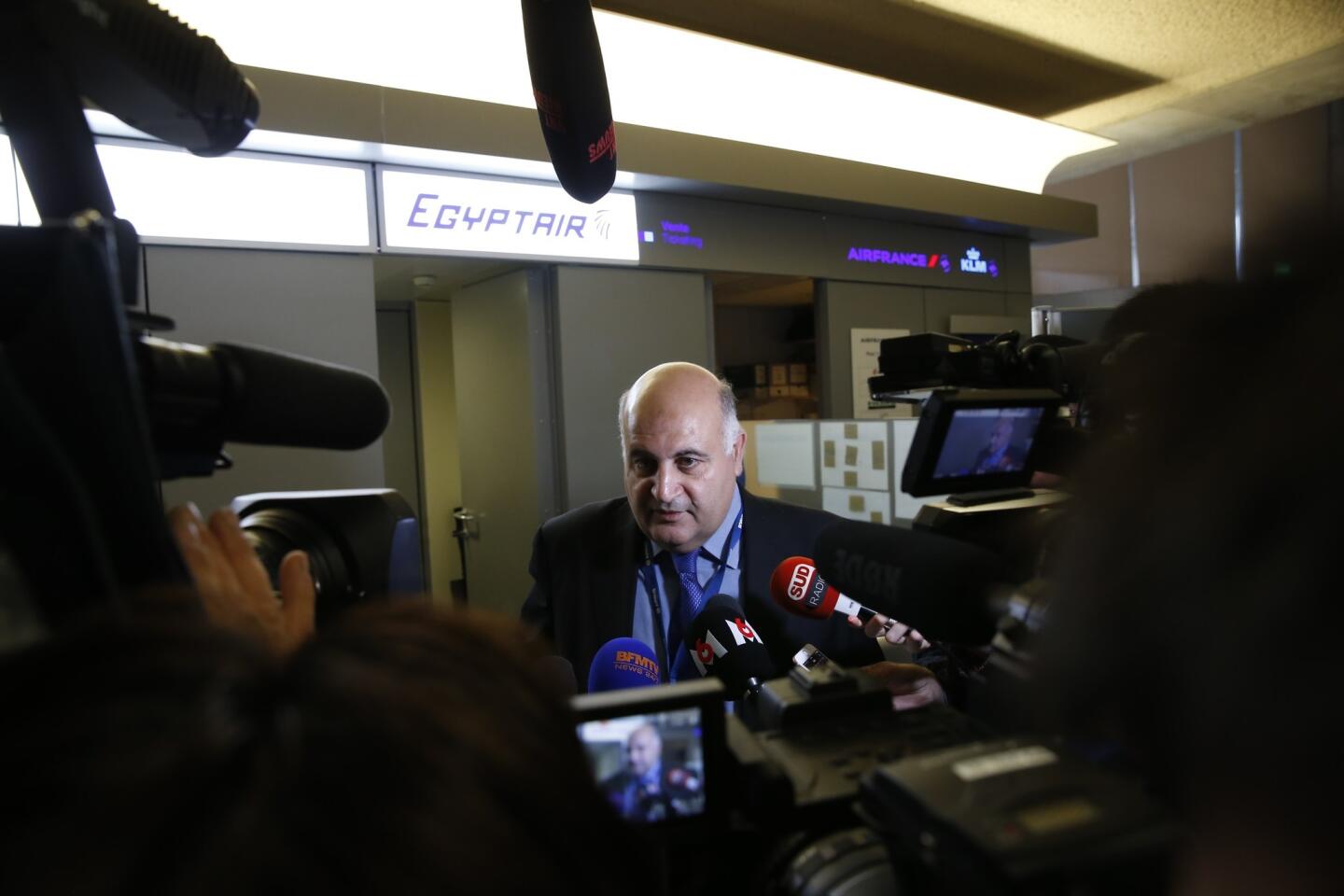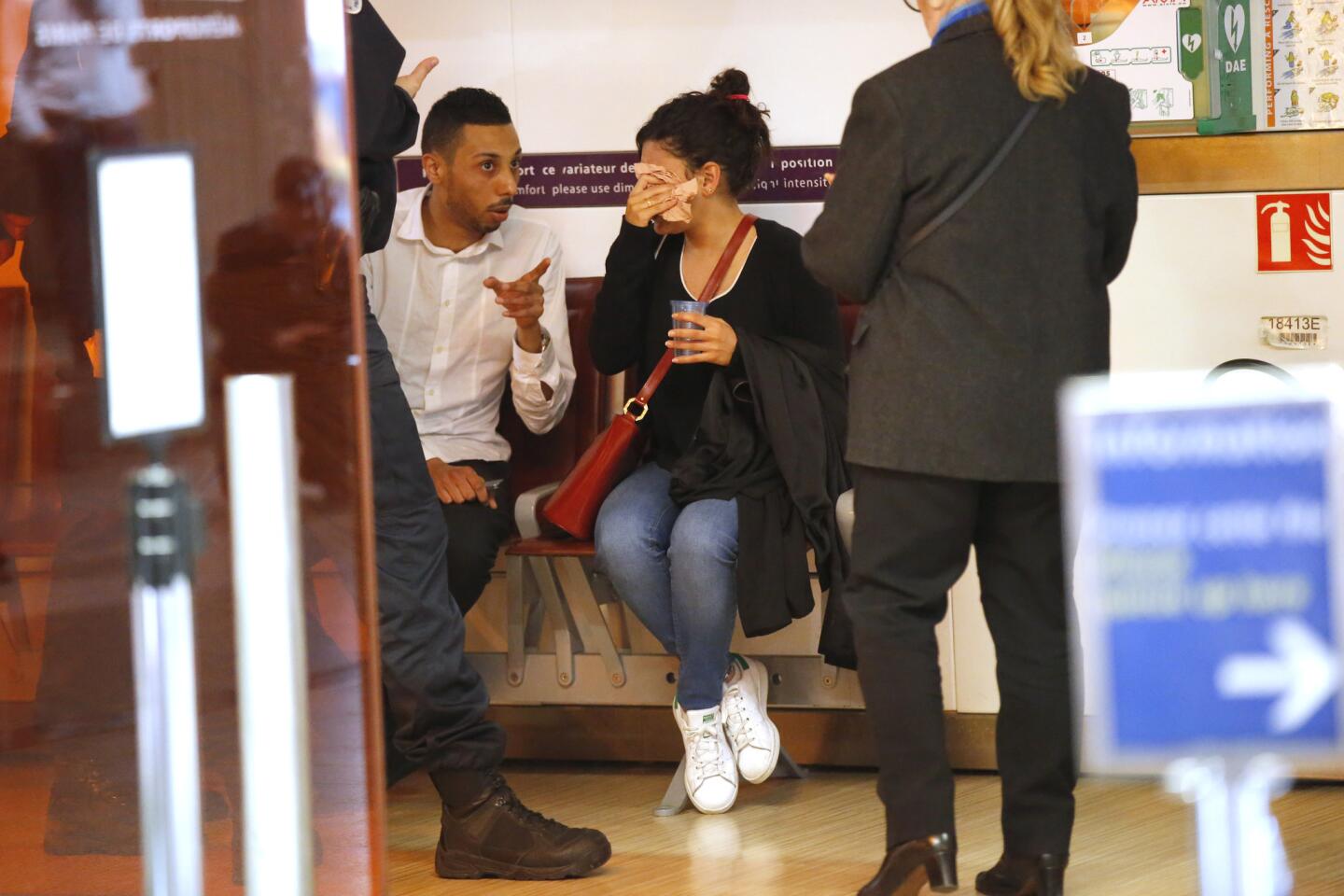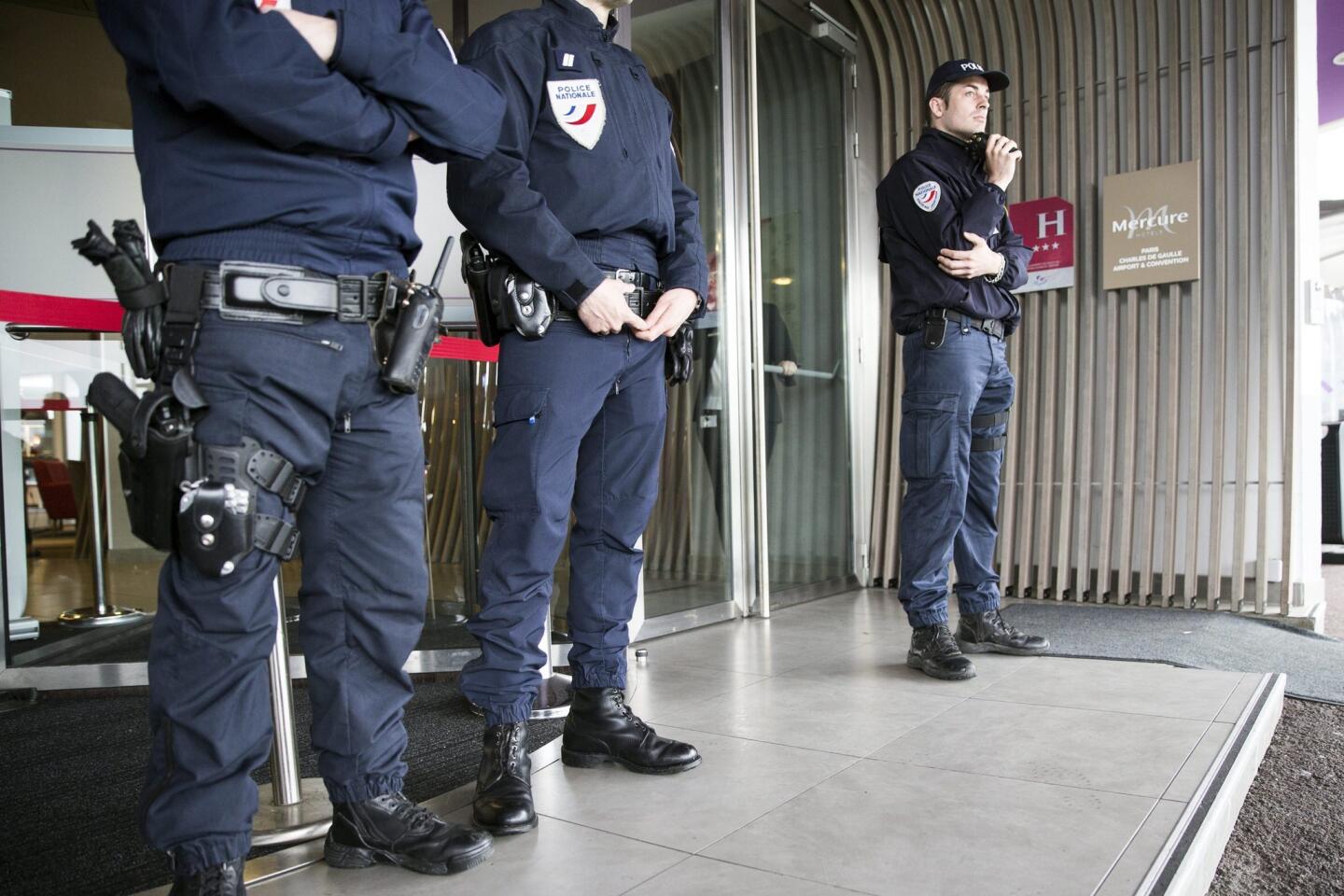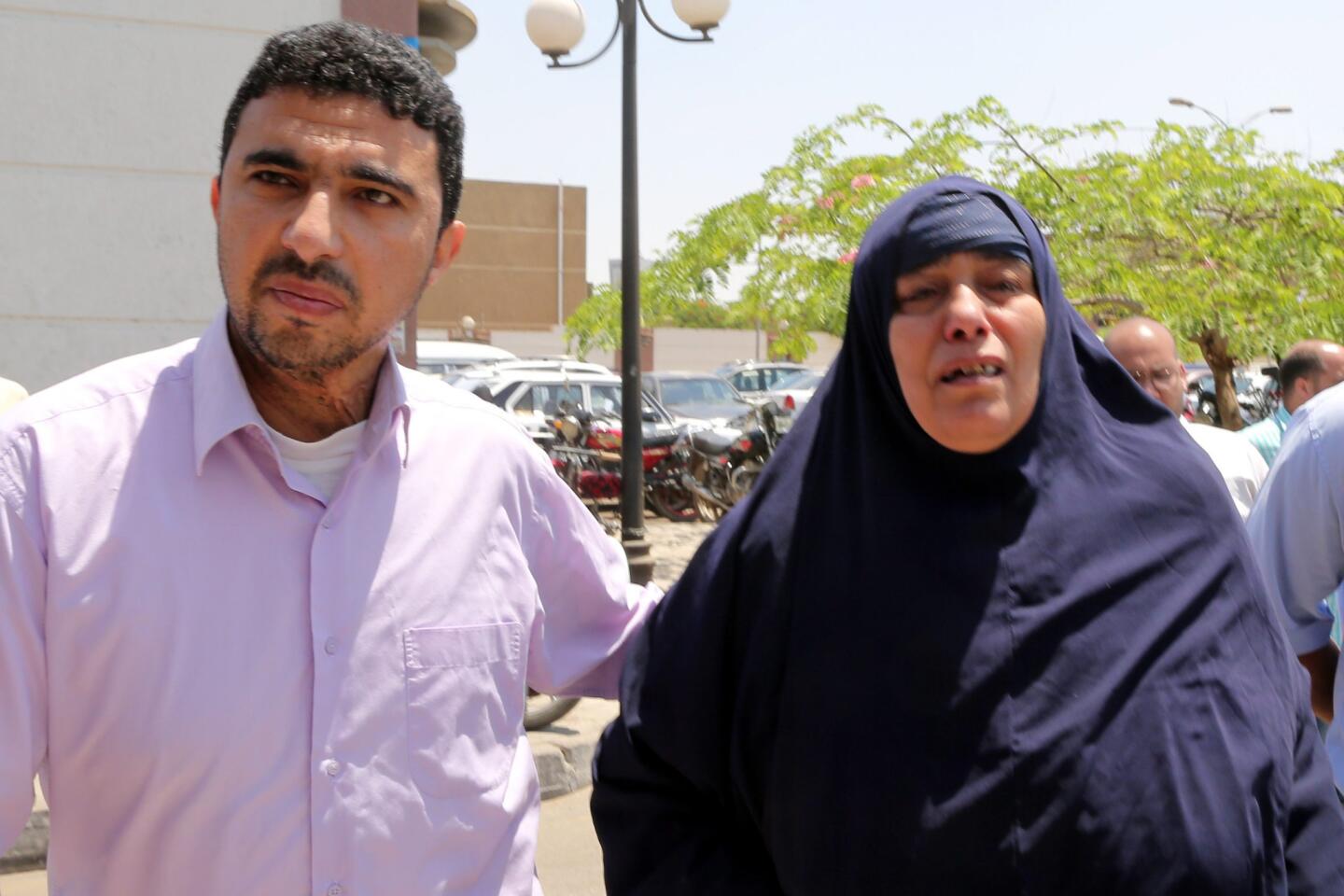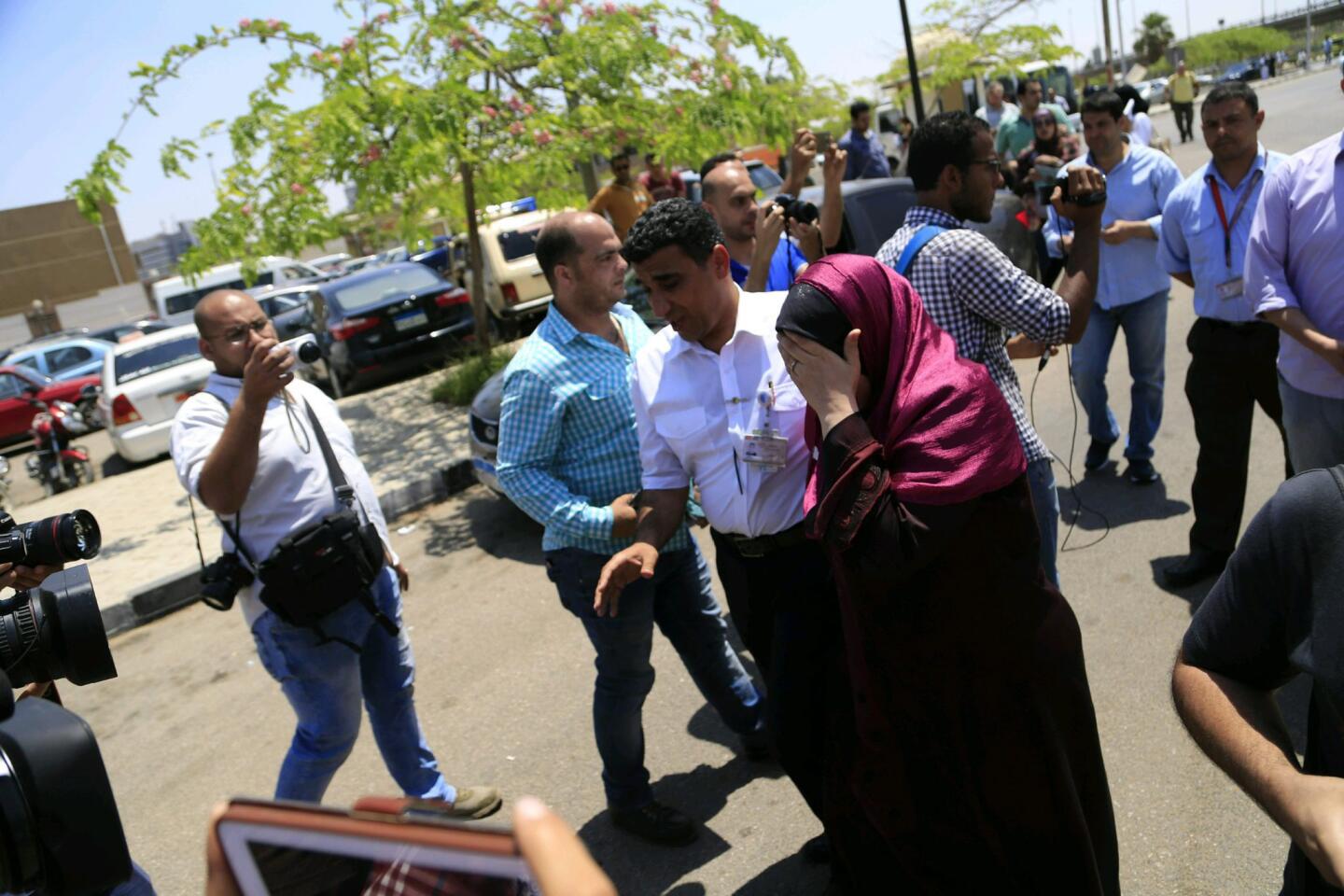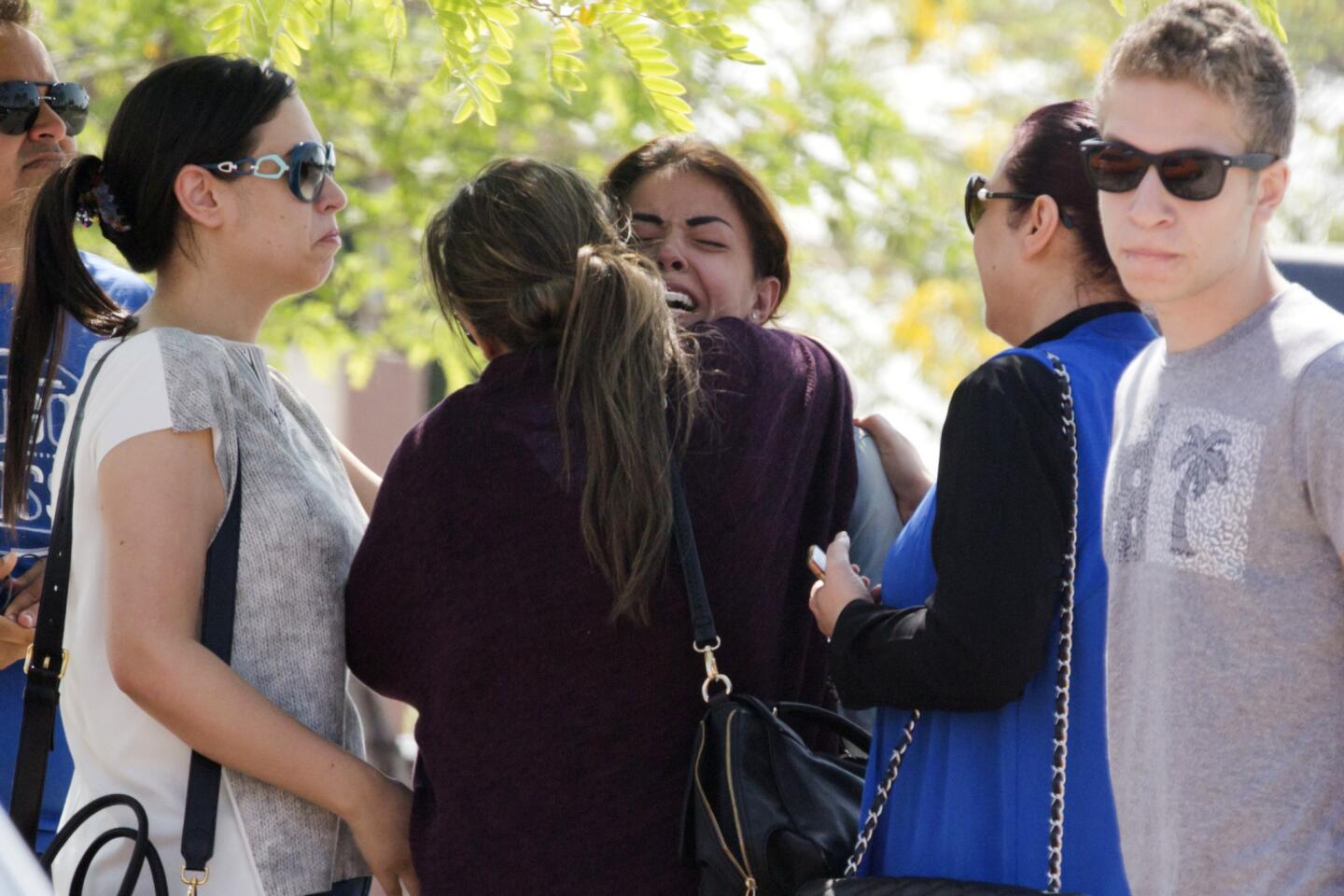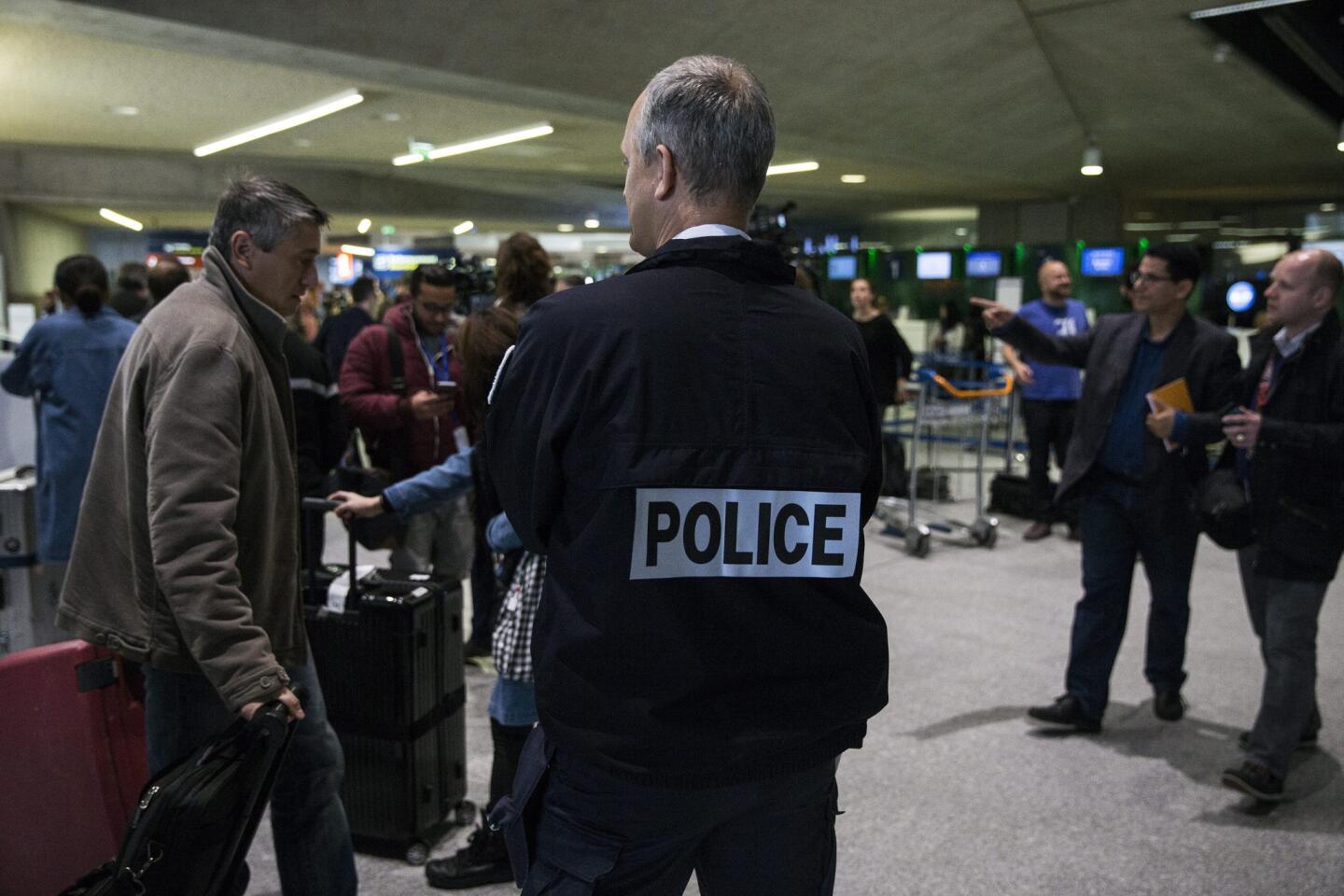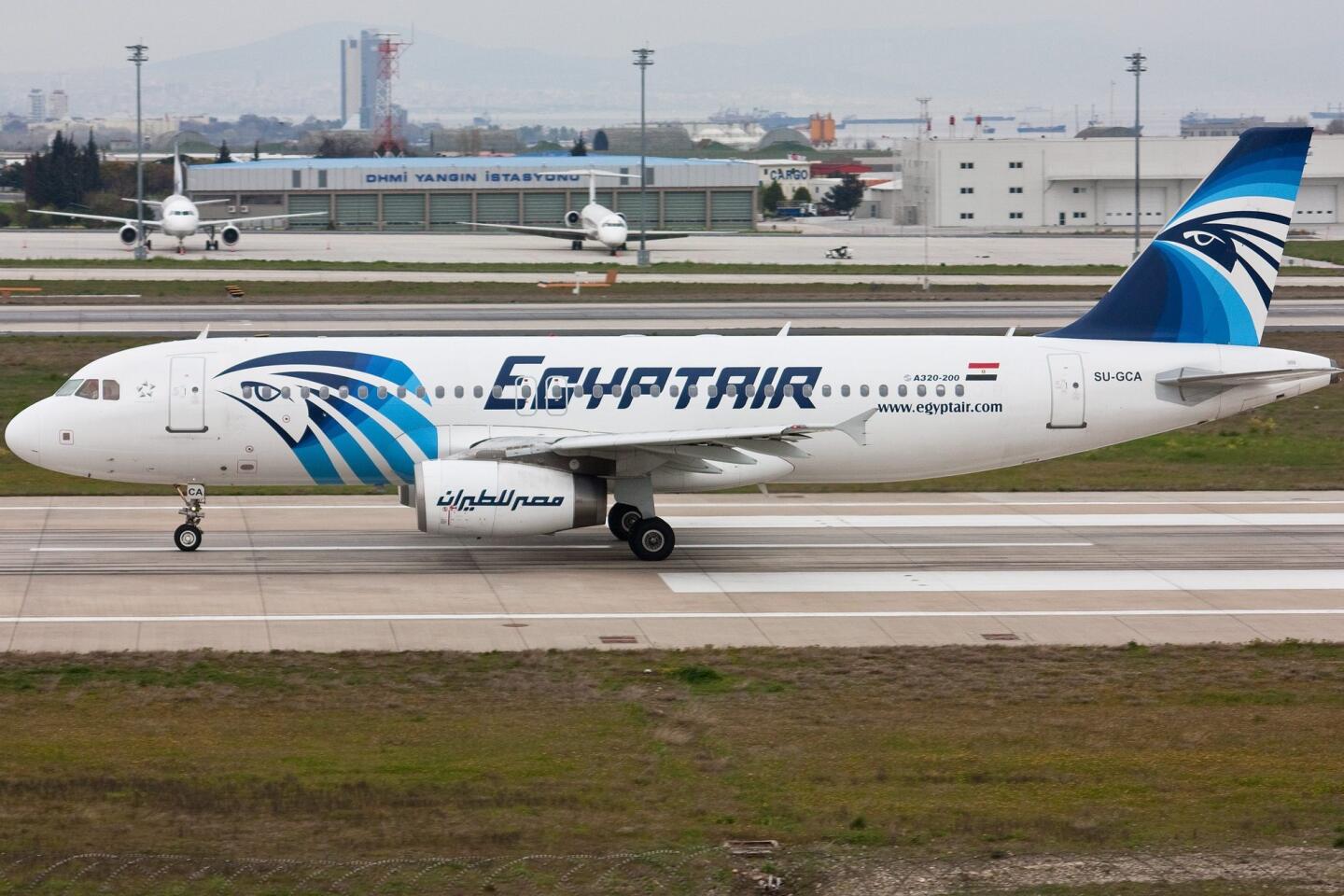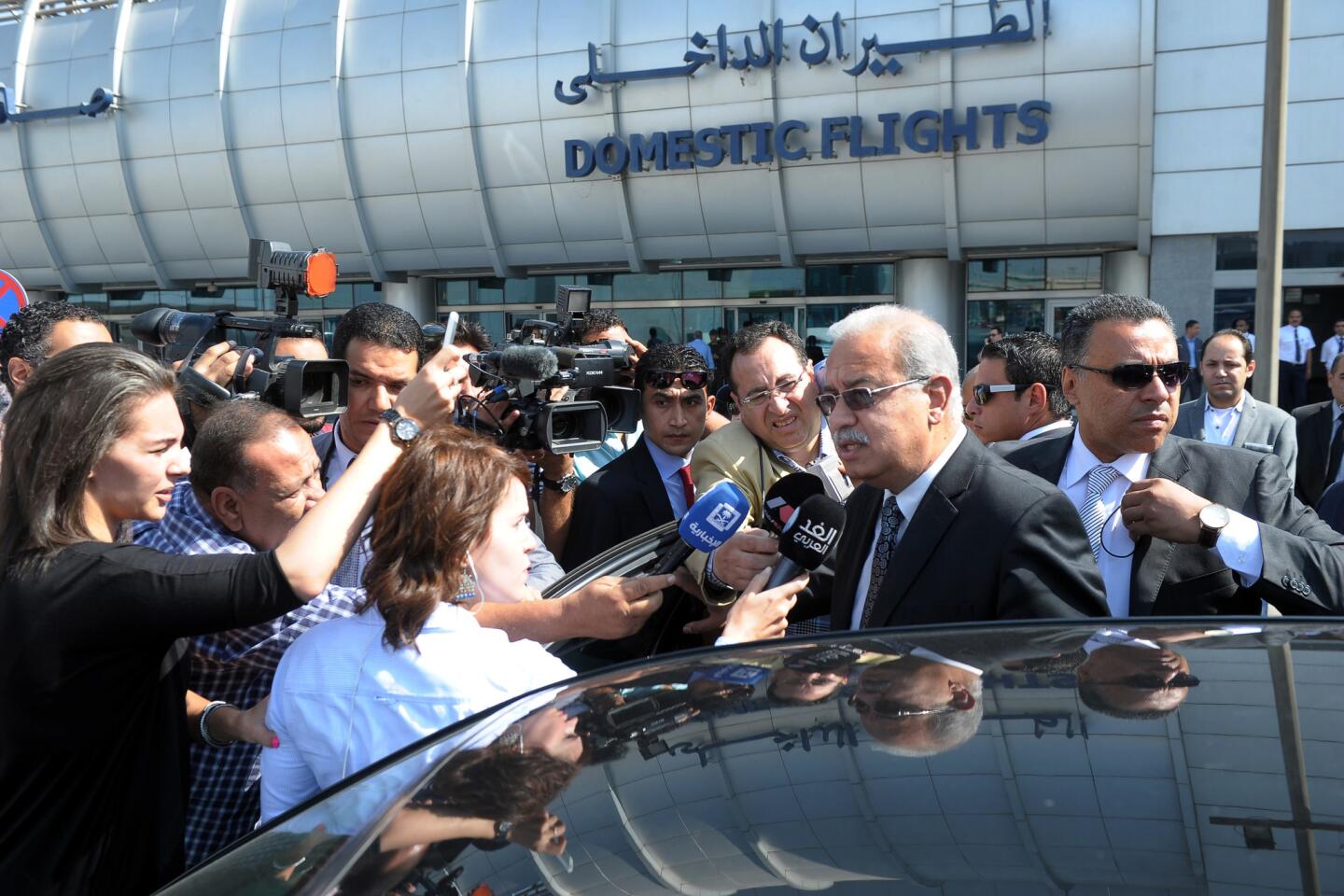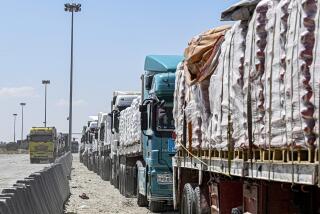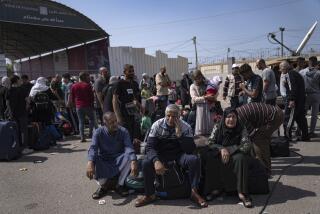Egypt can’t catch a break: Flight 804 disaster adds to a litany of woes
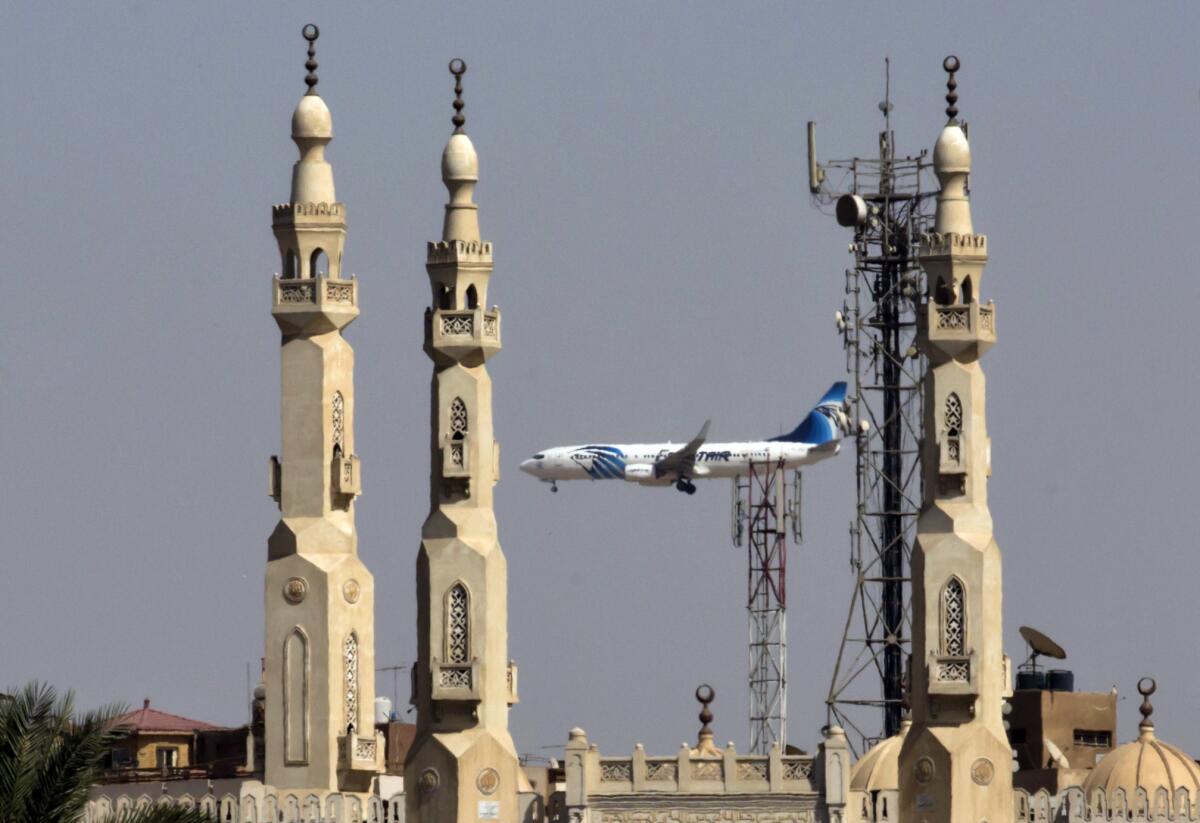
- Share via
Reporting from Cairo — A troubled economy, a potent Islamist insurgency, mounting concerns over human rights and media freedoms – and now this.
The crash of EgyptAir Flight 804 is the latest calamity in a country that has lurched from crisis to crisis in the five years since the protests that forced longtime President Hosni Mubarak from power.
On top of social and political turmoil, Egypt’s tourism sector, which accounts for 12% of the economy, has been battered by two previous incidents involving passenger airliners in the past seven months. The Egyptian currency dived in value as the number of foreign visitors fell off by nearly half at the beginning of this year.
The country was just beginning to shake off the effects of the deadly crash of a Russian jetliner in the Sinai Peninsula last October, and the bizarre but ultimately injury-free hijacking of an EgyptAir domestic flight in March.
See more of our top stories on Facebook >>
As investigators hunt for clues as to why Flight 804 plunged into the Mediterranean Sea hours into a journey from Paris to Cairo, the presumed deaths of all 66 people on board – including 10 EgyptAir personnel and 30 Egyptian passengers – have united many Egyptians in sadness and disbelief.
The only way it could get worse, many say, is if Egypt is found to be at fault.
“The reaction among people is one of resignation that these accidents keep taking place, and of course sorrow for the victims,” said Mustafa Kamel Sayed, a political science professor at the American University in Cairo.
“But there is also a sense of relief that – so far – nothing points to the responsibility of either the Egyptian government, authorities or EgyptAir.”
Within hours of the crash, Egyptian officials speculated that it was caused by terrorism, not a mechanical failure. That helped focus attention on a possible security breach at Charles de Gaulle airport in Paris, where the flight originated Wednesday night.
U.S. investigators also believe terrorism – possibly a bomb smuggled on board – may have caused the Airbus A320 to veer sharply at 37,000 feet before falling from the sky. The theory of an explosion was bolstered Saturday when a French civil aviation agency said the aircraft sent alerts about smoke in the cabin shortly before it lost radar contact.
NEWSLETTER: Get the day’s top headlines from Times Editor Davan Maharaj >>
But U.S. intelligence agencies have found no evidence that any of the passengers or crew had links to terrorists, and no group has claimed responsibility for the crash. Egyptian officials have issued few statements on the investigation while recovery teams continue to scour the Mediterranean for remains and wreckage, specifically the “black box” cockpit voice and flight data recorders that could hold the keys to what went wrong.
“Egypt has speculated no more than the U.S. or France on this crash and sounded very reasonable and measured,” said H.A. Hellyer, senior fellow at the Rafik Hariri Center for the Middle East at the Atlantic Council.
“Had this been a flight that departed from Egypt, the response from the government might not have been quite so measured.”
Discovery of a security failure by Egyptian authorities, or lapses by the airline, would be another blow to Egypt, and particularly President Abdel Fattah Sisi.
Under Sisi, Egypt has become particularly sensitive to allegations of governance failures. Since 2013, when Sisi ousted the Muslim Brotherhood government that took office in the country’s first free elections, the authoritarian former army field marshal has restricted civil rights in favor of stability.
Yet, Sisi has faced a growing threat from militancy in the Sinai, which began as a local security problem and has metastasized into a powerful insurgency claiming allegiance to Islamic State.
The militants, calling themselves “Sinai Province,” have claimed responsibility for attacks in mainland Egypt, including the killings of eight policemen in a southern district of the capital earlier this month.
Egyptian forces have launched operations against the militants, but efforts to pacify the insurgency by arming local Bedouin tribes have failed.
In October, Islamic State said it had bombed a Russian Metrojet aircraft that crashed in the Sinai, killing all 224 passengers and crew, the vast majority Russian tourists.
Egyptian authorities for months blamed technical malfunctions, but Sisi in February appeared to acknowledge that it was terrorism. He said in a speech that “those who downed the flight” wanted to harm Egypt’s relations with Russia, which has been carrying out attacks against Islamic State in Syria.
“Three years later, Egypt is not as stable and not as secure,” Omar Ashour, a professor at the University of Exeter in Britain who studies Egypt, said of Sisi’s tenure.
“An insurgency that started as a limited security problem on the border of Gaza became a larger insurgency with the capacity to strike elsewhere in the country and pull off attacks like Metrojet. So the government’s raison d’etre is undermined.”
Concerns about Sisi’s government also increased after the body of an Italian man was found, tortured and mutilated, in February outside Cairo. The victim, 28-year-old Italian Giulio Regeni, was a doctoral student conducting research on labor unions in Egypt, and his killing bore the hallmarks of an extrajudicial execution by state security forces.
The case sparked outrage in Egypt and Italy. The European Parliament issued a stinging statement saying it was “deeply concerned by the overall human rights situation in Egypt” and reports that police brutality and forced disappearances were on the rise.
The government has continued a harsh crackdown against human rights activists, particularly pro-democracy groups seen as having supported the protests against Mubarak in 2011. In 2013, a court ordered the closure of several such groups, including Freedom House, a U.S.-based organization, and issued jail sentences to dozens of staff members.
On Monday, a court is due to decide whether to freeze the assets of two prominent human rights activists, Hossam Bahgat and Gamal Eid, who are accused of receiving foreign funding illegally. The judgment could carry major implications for all nongovernmental advocacy groups in Egypt.
A law banning gatherings of more than 10 people without government permission has stifled protests against Sisi’s policies. News coverage of the civil rights crackdown has also generally been muted because many media organizations and commentators supported Sisi for removing the Muslim Brotherhood, which they viewed as extremist.
But dissent increased last month after Sisi’s Cabinet announced that Egypt was ceding two Red Sea islands to neighboring Saudi Arabia. Following a rare mass demonstration, state security forces rounded up hundreds of lawyers, activists and journalists, charging many of them with terrorism-related offenses.
The arrests prompted anger even among Sisi’s supporters. But many are also outraged at the Muslim Brotherhood – which has been banned as a terrorist organization since 2013 – for attempting to capitalize on the EgyptAir crash.
The group issued a statement in English on Saturday blaming the Sisi government without providing evidence, saying that “as long as this treacherous coup [administration] remains, Egypt will be vulnerable to further disasters, isolation and loss.”
“It’s a very small minority of people who jump to this conclusion,” said Sayed, the professor. “In general, people appreciate the way the government is handling the situation.”
ALSO
What we know about the crash of EgyptAir Flight 804
What we know about the people who were on EgyptAir Flight 804
EgyptAir crash raises new questions about European airport security
Twitter @SBengali
More to Read
Sign up for Essential California
The most important California stories and recommendations in your inbox every morning.
You may occasionally receive promotional content from the Los Angeles Times.
